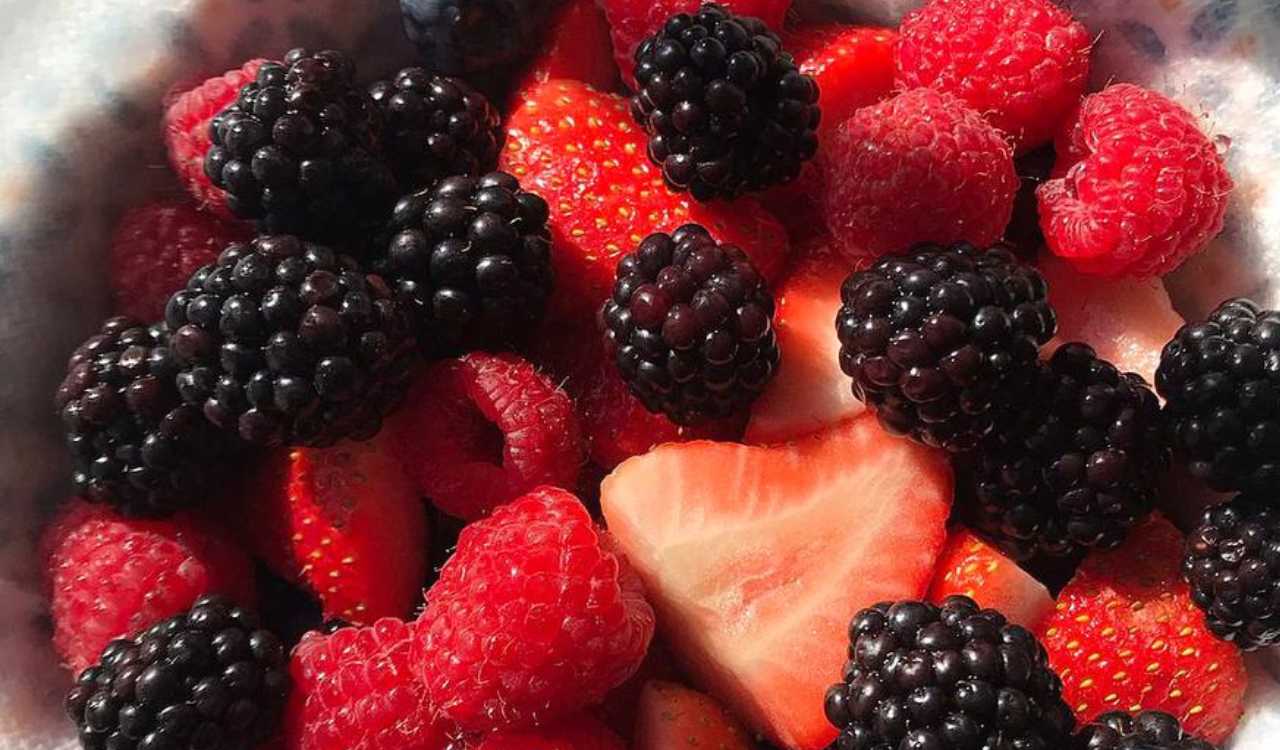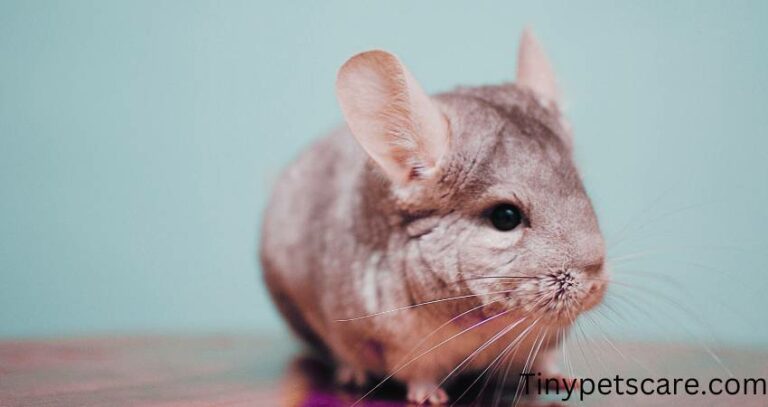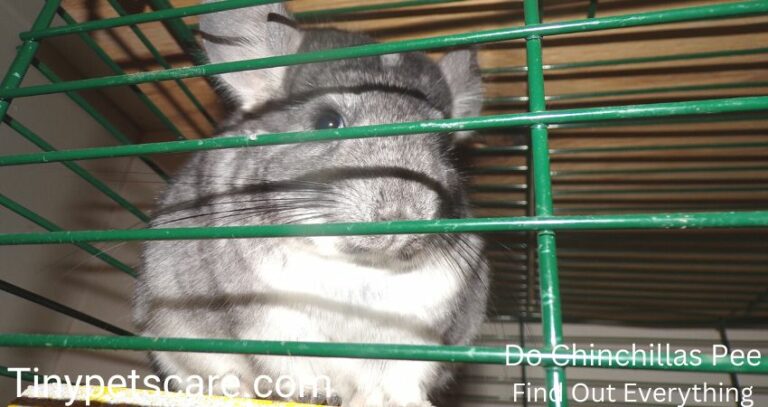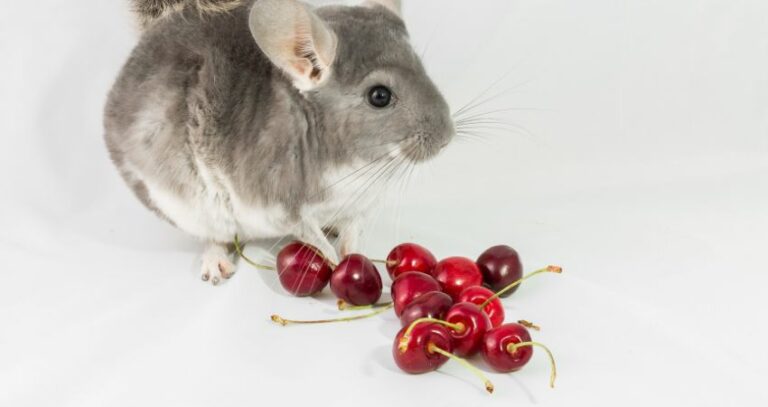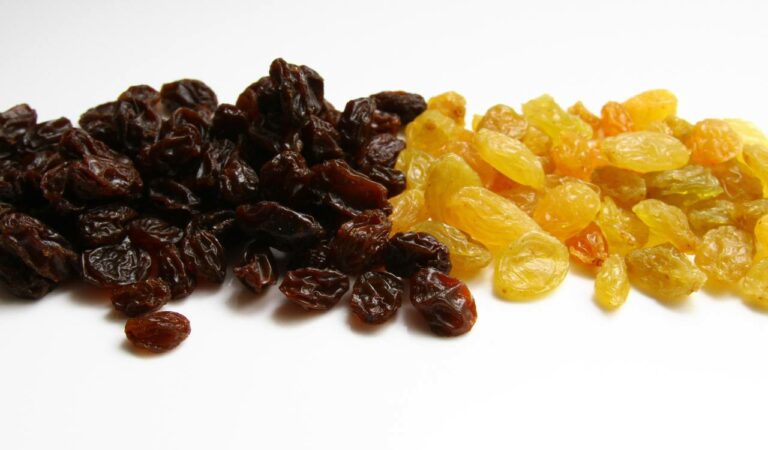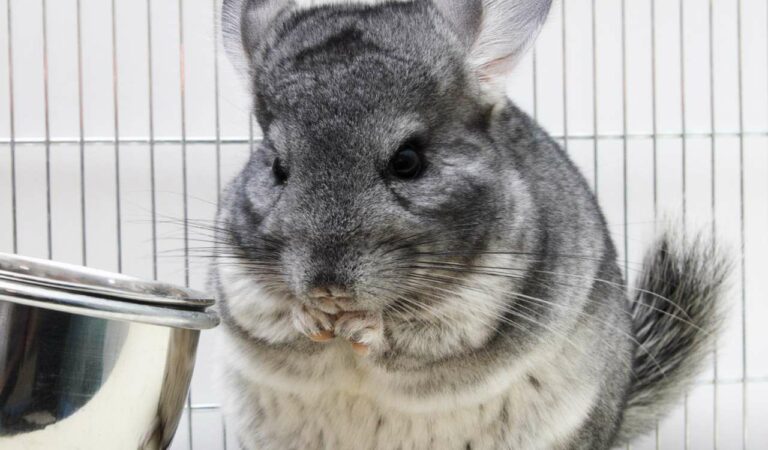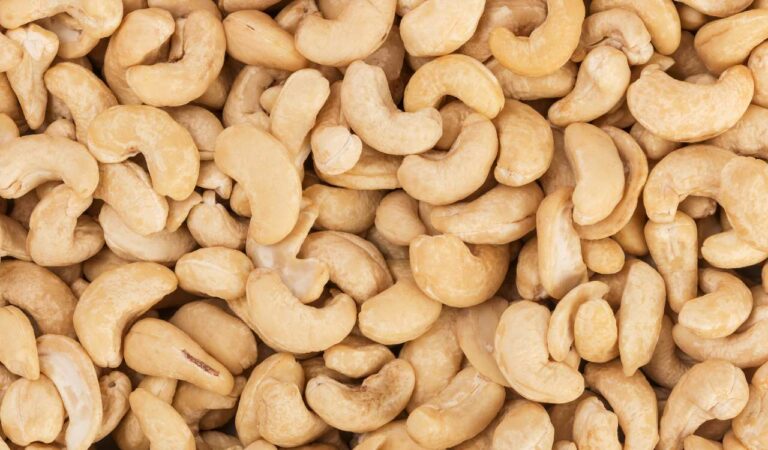Can Chinchillas Eat Raspberries? (Benefits and Risks!)
Chinchillas, native to the Andes Mountains in South America, are popular low-maintenance pets. They are easy to feed and social animals. While most of their food includes hay and pellets.
Yes, chinchillas can eat raspberries. But the amount should be very low. Raspberries have a large amount of water and sugar. Both of these are detrimental to your chinchilla’s health. But feeding a tiny amount of raspberries isn’t that bad.
However, they should be served in moderation as they contain sodium and fats, which may cause health issues to the little furries. That’s not all. Before you feed raspberries to Chinchillas you need to learn more about such as their nutritional values, benefits, and associated risks.
Can Chinchillas Have Raspberries?
You can feed raspberries to chinchillas. Chinchillas need a high-fiber, low-protein diet. Their main nutrition should come from grass hay and chinchilla pellets. However, you can feed them some dried fruits as treats occasionally.
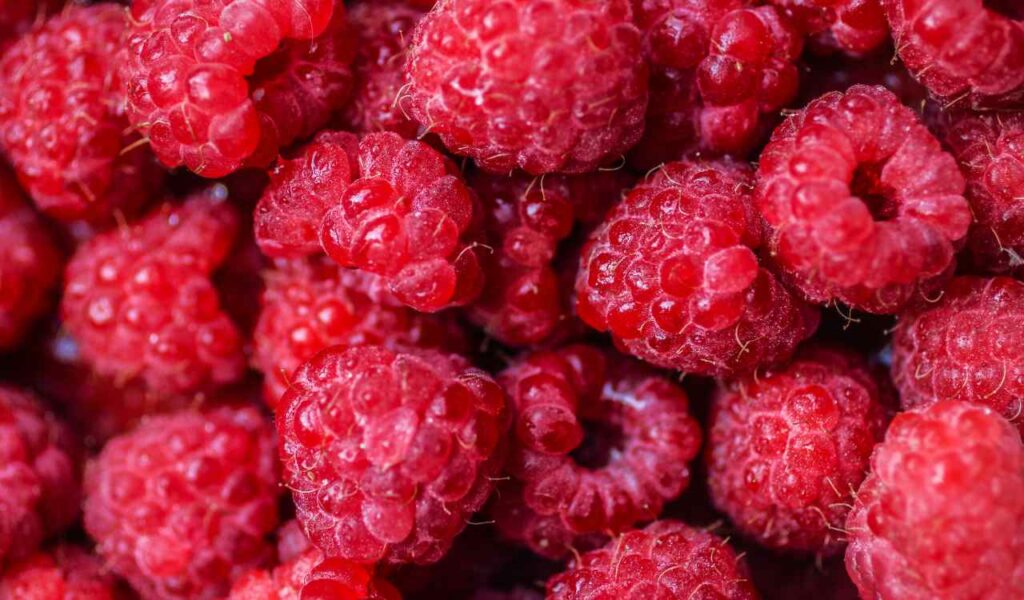
Raspberries are high in sugar and sugar. Bloating is the most common problem when chinchillas eat high sugar. Over time, sugar consumption leads to other problems like liver diseases, diabetes, and even GI stasis.
If you really want to feed raspberries to chinchillas, set strict limits. Chinchillas love fruits, and that is why most of their treats are dried fruits.
Typically, these are low-sugar, high-fiber, and low-water fruits such as dried bananas, apples, or raisins.
Is Raspberries safe for chinchillas?
Raspberries also contain a significant amount of water (85.8g per cup), which could cause digestive issues (According to the research of Kerrin Grant: Digestive Comparisons of 4 Common Rodent Species)
Chinchillas have a sensitive digestive system, and the high-water raspberries don’t help. Hence, it’s advisable to offer Chinchillas dried fruit treats since it’s easier for them to digest.
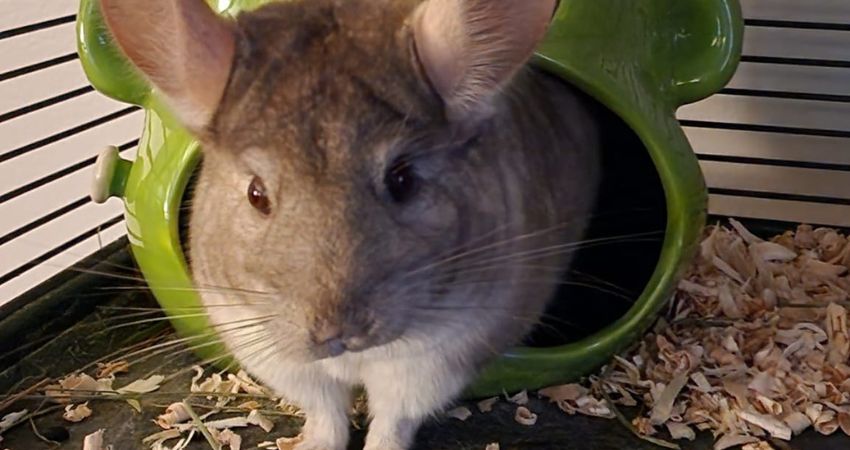
Additionally, the amount of sugar, fat, and sodium in these fruits can easily become unsafe. Therefore, you should only feed raspberries to chinchillas as an occasional treat – not a regular part of the diet.
While chinchillas should eat high-quality grass hay and low-protein pellets, a quarter cup of raspberries twice a week is ideal. That provides extra nutrition, flavor, and antioxidants without issues. But as with any treat, more of a good thing is needed for chinchillas.
Nutritional Value of Raspberries
This table shows raspberries’ nutritional values per 123g (1 cup) portion according to Food Data Central.
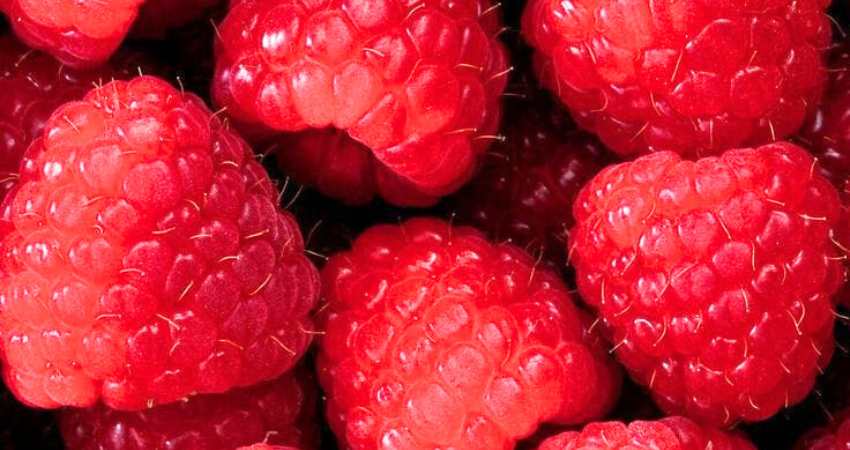
| Nutrients | Portion Size (1 cup) |
| Water | 85.8 g |
| Energy | 52 kcal |
| Protein | 1.2 g |
| Total Fat | 0.65 g |
| Carbohydrates | 11.9 g |
| Total Dietary Fiber | 6.5 g |
| Total Sugar | 4.42 g |
| Calcium | 25 mg |
| Iron | 0.69 mg |
| Magnesium | 22 mg |
| Phosphorus | 29 mg |
| Potassium | 151 mg |
| Sodium | 1 mg |
| Zinc | 0.42 mg |
| Vitamin C | 26.2 mg |
| Vitamin B1 | 0.032 mg |
| Vitamin B2 | 0.038 mg |
| Vitamin B3 | 0.598 mg |
| Vitamin B6 | 0.055 mg |
Health Benefits of Raspberries for Chinchillas
Raspberries have some health benefits for chinchillas. Check them out.
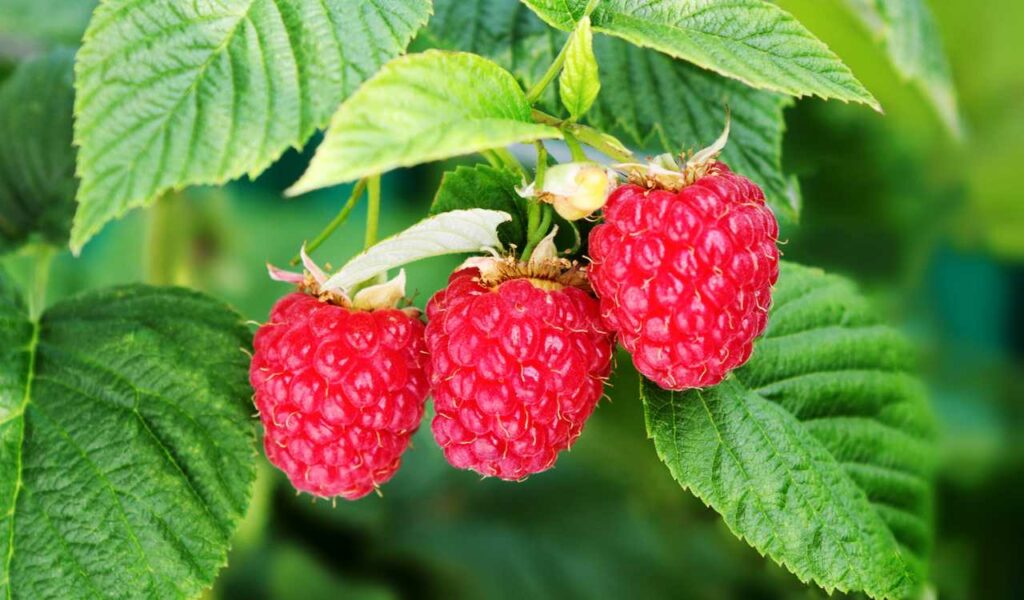
- The chinchilla diet should have about 35% of carbohydrates. As raspberries have about 12% carbohydrates, they can make up for a good portion of chinchillas’ daily needs. It gives your chinchilla some energy to be active.
- The amount of dietary fiber is also moderate in raspberries. Chinchillas need a lot of fiber in their diet and raspberries can help with that.
- As the protein content is low in raspberries, they can be helpful because chinchillas need only 15% of the protein in their diet.
- Raspberries have other useful nutrients, especially potassium, which is helpful in maintaining fluid balance. And vitamin C improves their immune system. But too much vitamin C is harmful to them. If you ask whether chinchillas can eat lemons, I would say no.
How Many Raspberries Can Chinchillas Eat? And How Often?
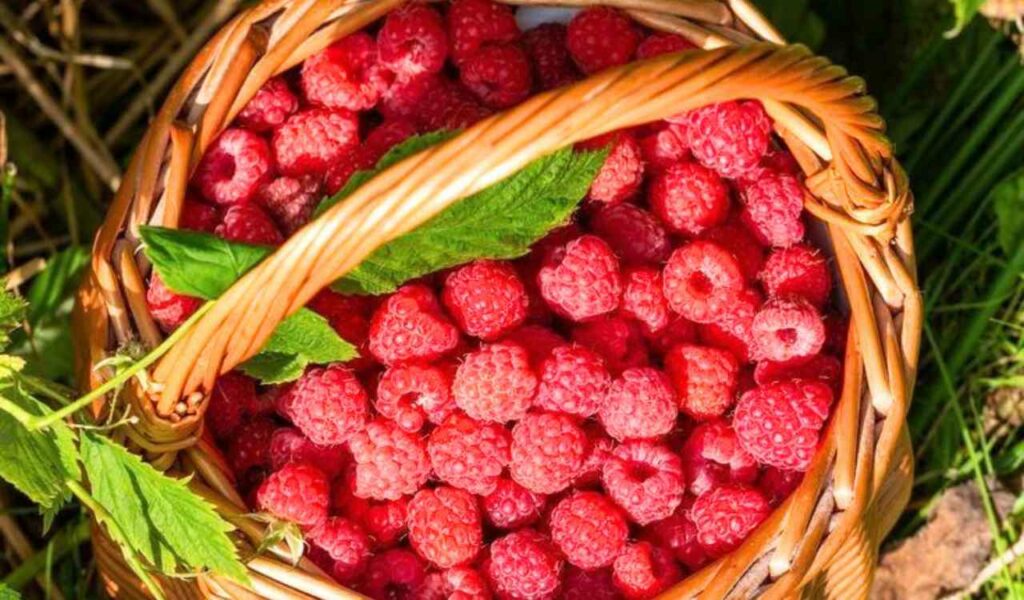
As I have already mentioned, raspberries shouldn’t be a staple in their diet. Instead, chinchillas should only get raspberries as treats. Giving one or two raspberries per week is enough. But it is best if you can avoid raspberries and make your pet used to other healthy options.
How to Prepare Raspberries for Chinchillas?
You should be careful while giving raspberries to chinchillas. These fruits have small seeds in each section. So, the whole fruit may have over 100 seeds. Prepare raspberries in the following way.

- Wash the raspberry well and pat it with a paper towel
- Separate the sections and remove the seeds from the core
- Give a few small sections to your chinchilla at a time.
Can Chinchilla Have Dried Raspberries?
You shouldn’t feed dried raspberries to your chinchillas. Dried fruits are often considered a healthier option for chinchillas because they contain less water.
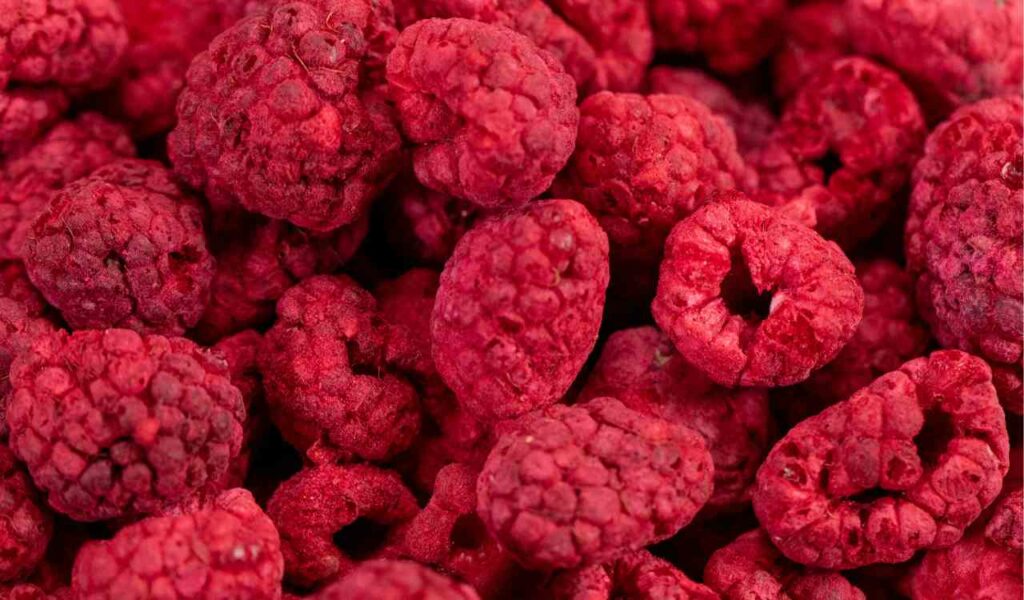
While the water content is low in dried raspberries, the sugar concentration noticeably rises in dried raspberries. Even if your chinchilla consumes a small amount of dried raspberries, that will result in a higher sugar intake.
Health Risks of Overfeeding Raspberries to Chinchillas
Raspberries pose two major threats to chinchillas. Let me tell you more about the risks.
● High Water Content
Chinchillas need only 10% water of their body weight every day. For example, my chinchilla weighs about 600g. So, it will need a maximum of 60 ml of water per day. One raspberry weighs roughly 5g, of which more than 4g is water. If your chinchilla eats a few raspberries, that will fulfill a large percentage of its water requirement for the day.
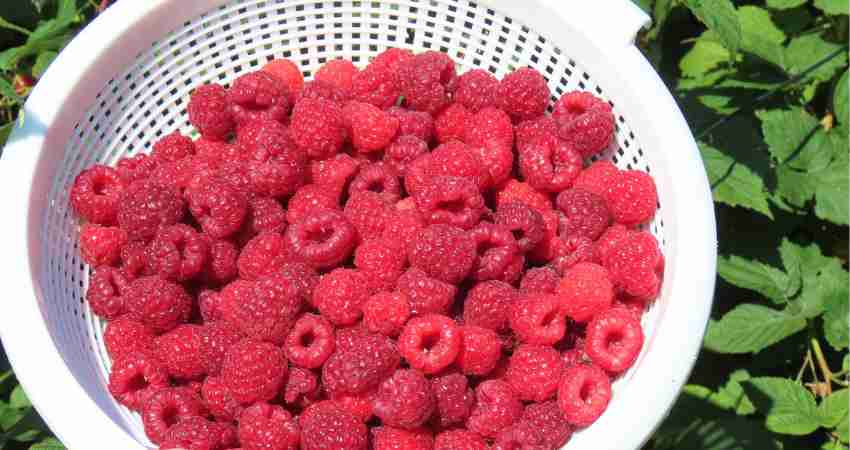
And when chinchillas will drink water, the total amount of water in their digestive tract will cross the safe limit. This is when chinchillas start bloating. Gastroesophageal irritation can also happen. And chinchillas can suffer from diarrhea if they consume too much water.
● Too Much Sugar
Chinchillas need a small amount of sugar in their diet, up to 4%, to be specific. So, if they consume a total of 30g of food per day, the sugar content should only be 1.2g. I have calculated the sugar in each raspberry according to the above chart. Each raspberry contains about 0.22g of sugar.
If your chinchilla eats six raspberries, those will fulfill the sugar requirement for the day. But as other elements in their diet also contain sugar, the total sugar consumption will be too high. So, your little pet will suffer from an array of health issues.
Sugar also causes obesity in chinchillas. If your chinchilla continues to eat foods with high sugar, it will soon become obese and lethargic. This will increase the risk of diabetes. Sugar is also responsible for many dental problems in chinchillas. Among them, oral cavity, periodontal disease, etc., are common.
Alternatives to Raspberries for Chinchillas
As almost all berries contain high water and sugar, you need to choose something healthier. Here is a list of healthier snacks for chinchillas.
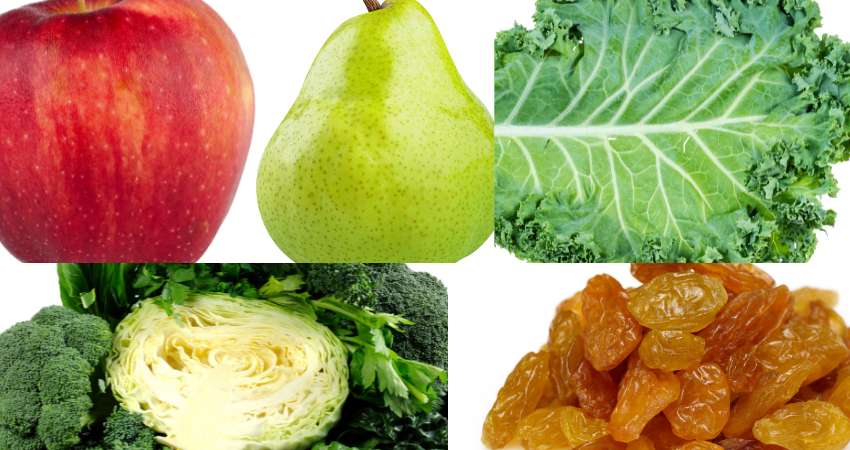
- Apples
- Pears
- Carrots
- Kale
- Potato
- Squash
- Leafy greens
- Raisins
The Bottom Line
While there are benefits to giving your Chinchillas raspberries, there are risks involved. So, offer them as dried fruit treats in moderation. Remember, their main nutrition should come from hay and pellets. The last thing you want is to visit or call a vet because your little furry is sick, diabetic, or obese.
If you’re considering giving the little furies alternative berries, go for dried, low-water berries that are easy to chew and digest. You want to ensure they are low on sugar and your little furry isn’t allergic. What’s more, the berries you pick should not be acidic as that can more risks. If you have any further questions, consult your veterinarian.
